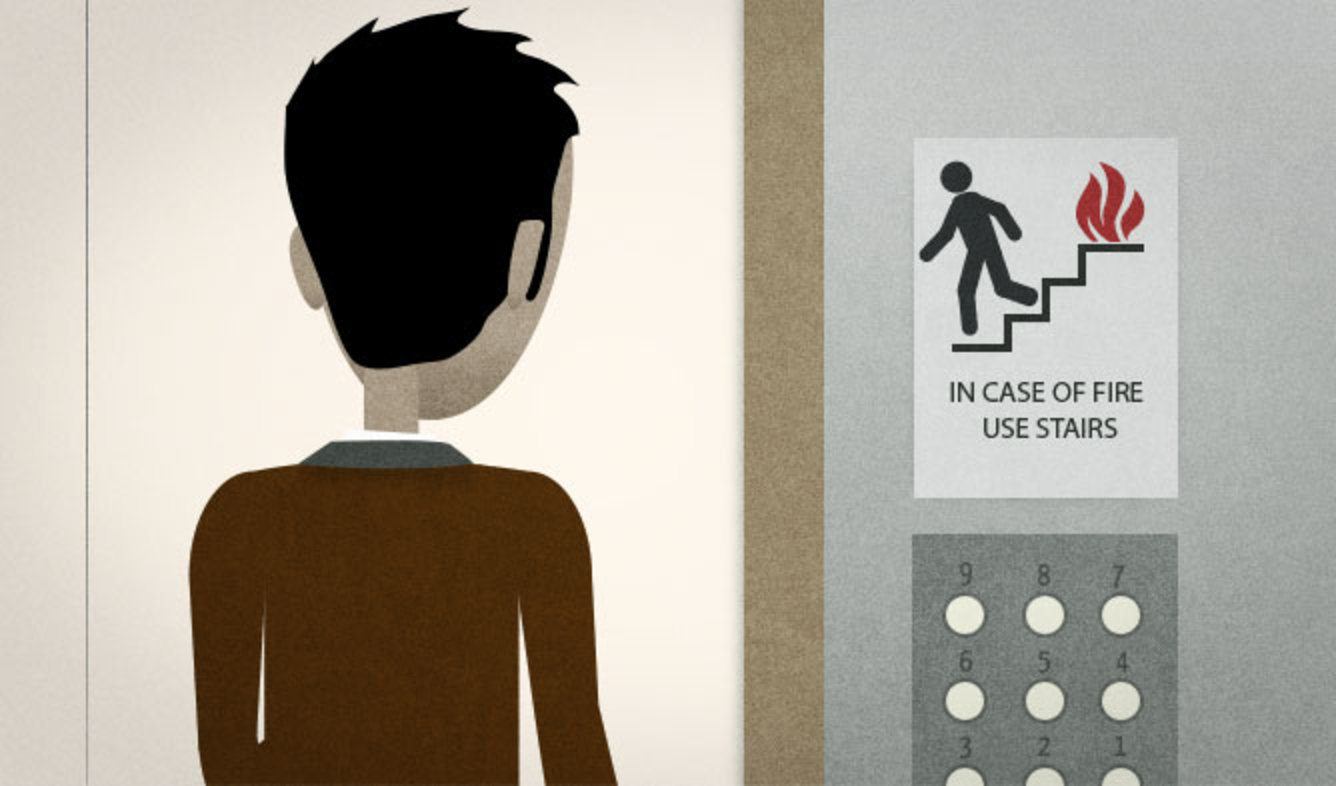“In case of fire, use stairs unless otherwise instructed.”
You're waiting for an elevator to leave a building. There's a sign on the wall that says this.
In case of fire, use stairs unless otherwise instructed.
Want Video and Sound? Follow us on YouTube

In case of (something), (do something)
Use this phrase to describe what to do if a certain situation happens. This formal phrase is often written on signs and instructions to explain what to do in emergency situations. For example, some buses have this sign on one of their windows:
In case of emergency, pull lever and push out.
You can also use "in case of ___" at the end of a sentence like this:
I like to keep around a few days' supply of bottled water and canned food in case of emergencies.
And there's also a less formal version, "in case (somebody) (does something)" that you use for talking about things that aren't emergencies:
Why don't you take some snacks with you in case you get hungry?
use stairs
Signs are often written in a special shortened form of English that doesn't use articles. The normal way to express this idea waould be:
use the stairs
(do something) unless otherwise instructed
This is a phrase to use when giving instructions. "Unless otherwise instructed" means "unless someone gives you different instructions". For example:
When you hear an alarm, stay in your office unless otherwise instructed.
This means that the basic instruction is to stay in your office. But if someone gives you different instructions, you should follow them.
This is a formal-sounding expression.
